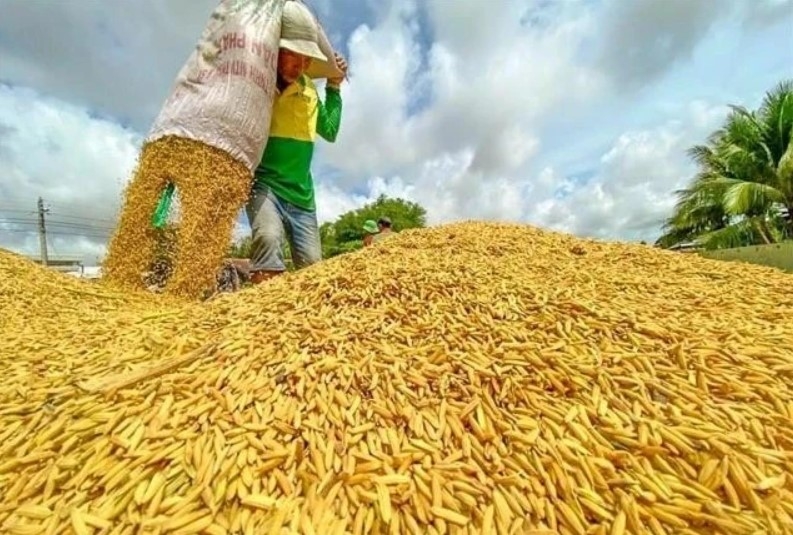Rice export prices fall nearly 19% despite growing volume
Vietnam’s rice industry is facing a steep drop in export prices, even as shipment volumes climb, underscoring the challenges of a volatile global grain market.
According to the Ministry of Agriculture and Environment, the country exported an estimated 4.5 million tonnes of rice in the first five months of 2025, equivalent to 4.5 billion kilogrammes, generating approximately US$2.34 billion.
While the quantity rose by 12.2% year-on-year, export value declined by 8.9%. This sharp contrast resulted from a significant decrease in the average export price, which dropped to around US$0.516 per kg, down 18.7% compared to the same period last year.
Domestically, paddy prices across the Mekong Delta remained relatively stable throughout the past week.
In provinces like Vinh Long and Tien Giang, IR 50404 paddy continued to be traded at VND6,600 per kg (US$0.26).
OM18 was priced at VND7,500 per kg (US$0.295) in Can Tho, VND8,100 per kg (US$0.319) in Soc Trang, and VND7,000 per kg (US$0.275) in Tien Giang.
Jasmine rice reached VND8,400 per kg (US$0.331) in Can Tho and VND7,100 per kg (US$0.28) in Tien Giang.
ST 25 remained one of the most valuable varieties, holding at VND9,500 per kg (US$0.375).
In An Giang province, fresh IR 50404 paddy was being purchased by traders at VND5,400–5,600 per kg (US$0.213–0.221), OM 380 at VND5,200–5,400 per kg (US$0.205–0.213), and OM 5451 at VND6,200–6,400 per kg (US$0.245–0.253), according to the provincial Department of Agriculture and Environment.
Retail rice prices in An Giang also displayed diversity, depending on type and quality.
Ordinary rice varieties ranged between VND14,000–15,000 per kg (US$0.553–0.593), while aromatic long-grain rice imported from Thailand reached VND20,000–22,000 per kg (US$0.79–0.87).
Jasmine rice was sold at VND16,000–18,000 per kg (US$0.63–0.71), Nang Hoa at VND21,000 per kg (US$0.83), and Japanese rice, along with Huong Lai, was priced at VND22,000 per kg (US$0.87).
Varieties like Soc Thai and Taiwanese fragrant rice also stood at around VND20,000 (US$0.79) per kg.
In processing facilities, the price of raw IR 504 rice was between VND7,900–8,000 per kg (US$0.312–0.316), with the finished product reaching VND9,500–9,700 per kg (US$0.375–0.383).
OM 380 raw rice was sold at VND7,850–8,000 per kg (US$0.31–0.316), while processed OM 380 rice fetched VND8,800–9,000 per kg (US$0.347–0.355).
By the end of May, Vietnamese farmers had planted roughly 4.22 million hectares of rice.
However, the harvested area shrank to 2.57 million hectares, producing an estimated 17.5 million tonnes of rice, down 2% year-on-year.
The yield per hectare saw a slight improvement to about 6.8 tonnes.
The Philippines remained Vietnam’s largest rice importer, accounting for 41.4% of the country’s total exports.
Cote d'Ivoire followed with 11.9%, and China with 10.3%.
Despite the volume, the Philippines’ import value dropped 21.8% in the first four months.
In contrast, exports to Cote d'Ivoire surged by 2.7 times, and shipments to China increased by 83.7%.
Bangladesh posted the most dramatic rise — a 515.6-fold increase in value — while Indonesia recorded a sharp 97.9% decline.
The Vietnam Food Association (VFA) reported that Vietnam’s 5% broken rice is currently quoted at US$0.393 per kg, down US$0.003 from last week.




